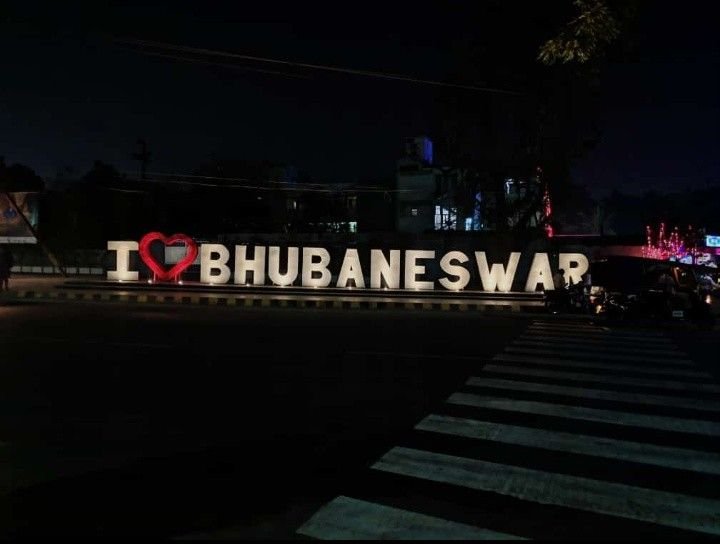When you or someone you love needs a prosthetic, life can feel uncertain. But with the right support, recovery becomes easier. If you live in or near Bhubaneswar—or are thinking of traveling here for prosthetic care—this guide is for you.
This article will walk you through everything. From finding the right prosthetic clinic to planning your travel, understanding rehab steps, and knowing what to expect—it’s all here. We’ll also share useful tips and contacts to help you feel more prepared, confident, and cared for.
Whether you’re a first-time user or helping someone who’s been through limb loss, we hope this guide makes your path feel a little lighter.
Let’s begin with understanding Bhubaneswar as a destination for prosthetic care.
Why Choose Bhubaneswar for Prosthetic Care?
A Growing Hub for Medical Services
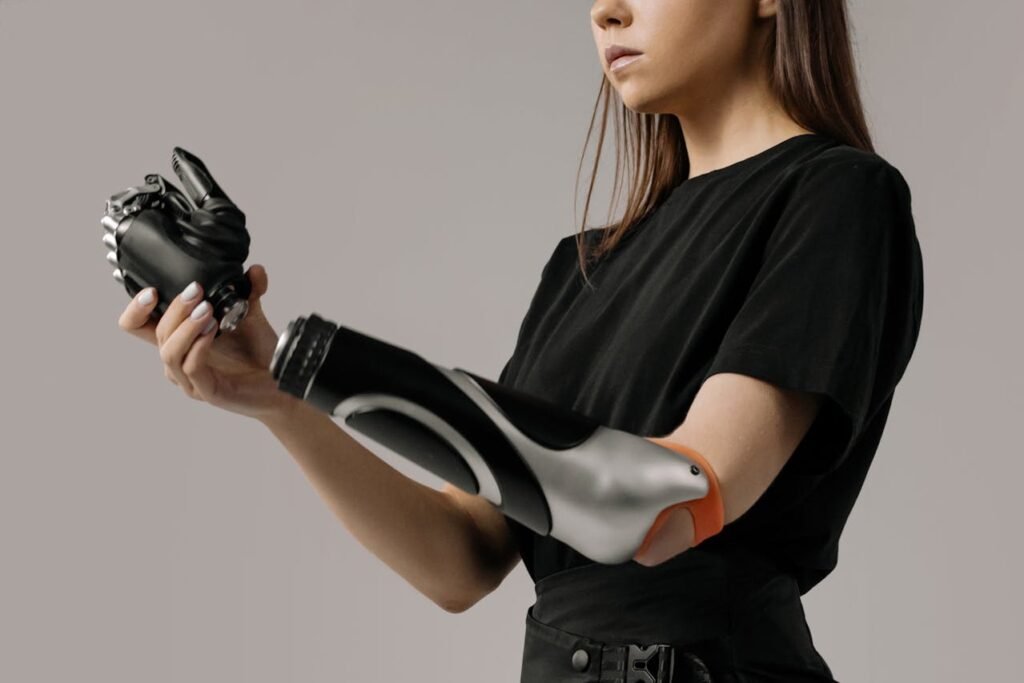
Bhubaneswar, the capital of Odisha, is fast becoming a center for quality healthcare.
The city now has several hospitals and rehab centers that offer prosthetic services. Many of them work with skilled doctors and trained technicians.
This means you don’t always need to travel to metro cities like Delhi or Mumbai for treatment.
Affordable Treatment Options
Compared to larger cities, Bhubaneswar often has lower medical costs.
You can get the same quality of care at a fraction of the price. This makes it a great choice if you are looking for affordable, long-term prosthetic care.
Even stay and travel costs are lighter on the pocket.
Calm, Patient-Friendly Environment
Bhubaneswar is not too crowded or noisy. For someone in recovery, that really helps.
People are kind, roads are manageable, and getting from one place to another doesn’t take hours.
This makes it easier for patients—especially elderly or first-time prosthetic users—to move around safely.
Types of Prosthetic Services Available in Bhubaneswar
Myoelectric Prosthetics
Some clinics now offer myoelectric hands and limbs.
These use your own muscle signals to control the device. It feels more natural and intuitive.
Grippy™, our myoelectric bionic hand, is one such option available in India—and yes, it’s also used by people in Bhubaneswar.
Mechanical Prosthetics
Mechanical or body-powered prosthetics are still widely used.
They’re less expensive and don’t need batteries. You control them using your shoulder or upper body.
This is a good choice if you’re looking for something simple and sturdy.
Cosmetic Prosthetics
Cosmetic limbs are mainly for appearance. They don’t move or function but look close to a natural hand or leg.
Some people choose these for social confidence or to wear in public settings.
Clinics in Bhubaneswar do offer custom cosmetic limbs, often in skin-toned finishes.
Pediatric Prosthetics
Prosthetic care for children needs special attention.
Kids grow fast, so their limbs need regular updating. Some centers in Bhubaneswar are now equipped to handle pediatric cases.
This includes special fittings, soft materials, and kid-friendly rehab programs.
What to Expect: The Journey from Limb Loss to Recovery
First Assessment and Consultation
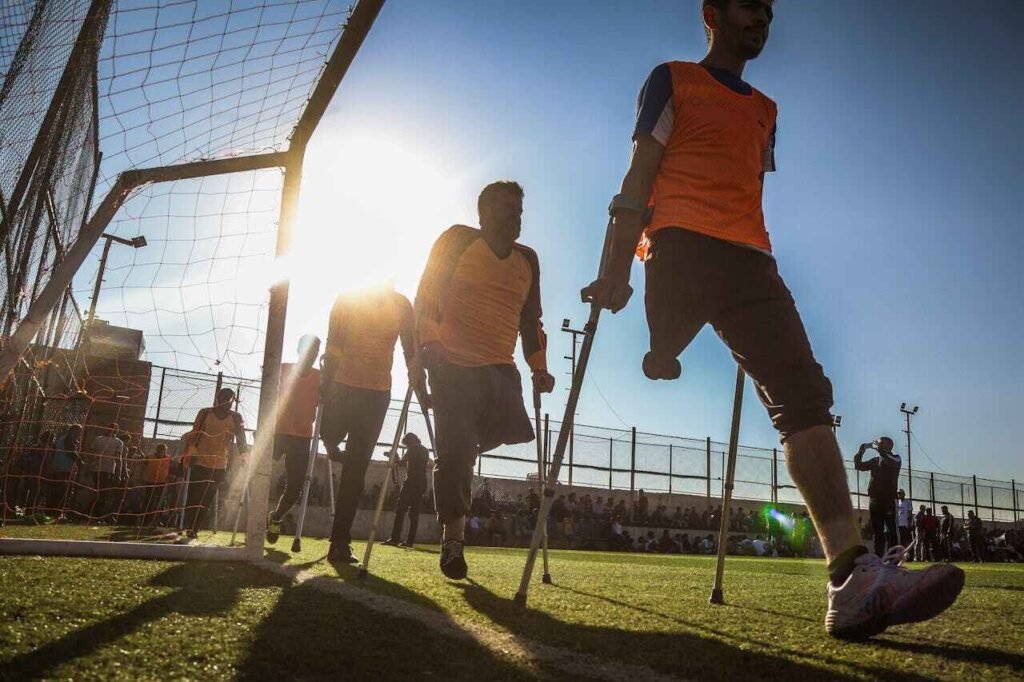
Your journey starts with a detailed check-up.
Doctors and prosthetists will look at your amputation site, understand your lifestyle, and talk about your goals.
This step is very important. It helps them choose the right kind of prosthetic for you.
Choosing the Right Prosthetic
You’ll get to see and sometimes try different types of limbs.
Whether you go for a bionic hand like Grippy™ or a mechanical arm, the goal is to match it to your daily life.
This decision takes time, and the team will guide you carefully.
Custom Fitting and Trial
Once you choose your prosthetic, a custom socket is made to fit your limb.
This part has to be just right. A good fit means less pain and better control.
You’ll also do a few trial rounds, where the team makes small changes based on your feedback.
Learning to Use It
Wearing a prosthetic for the first time can feel strange.
That’s okay.
You’ll work with rehab specialists who will teach you how to move, lift, grab, and even write or cook with your new limb.
This stage takes patience—but every step forward is worth it.
Emotional and Mental Recovery
Limb loss affects more than just the body.
In Bhubaneswar, many rehab centers also offer counseling and emotional support. Talking to someone helps.
Some users also find hope in peer groups—meeting others who’ve been through similar journeys.
Planning Your Travel to Bhubaneswar for Prosthetic Care
How to Get There
Bhubaneswar is well-connected by air, rail, and road.
The Biju Patnaik International Airport has flights from most Indian cities. There’s also a major railway station right in the city.
If you’re traveling from nearby states like West Bengal, Chhattisgarh, or Jharkhand, buses and trains are easy options.
Where to Stay
You’ll find many hotels, guest houses, and service apartments near hospitals.
Some are even within walking distance of the clinics.
If you’re coming for long-term rehab, look for a place with a kitchen and elevator. Comfort matters.
Getting Around the City
Ola, Uber, and local autos are widely available.
Distances are short. Most prosthetic centers and hospitals are within 30–40 minutes of each other.
This makes it easier for daily visits or check-ups.
What to Pack
If you’re coming for a prosthetic fitting or rehab, pack comfy clothes that are easy to wear and take off.
Bring your medical reports, ID, insurance papers (if any), and chargers.
Also, carry snacks or home food if you have dietary needs. Not all places serve everything you might want.
Top Prosthetic Clinics and Centers in Bhubaneswar
Government Hospitals with Prosthetic Units
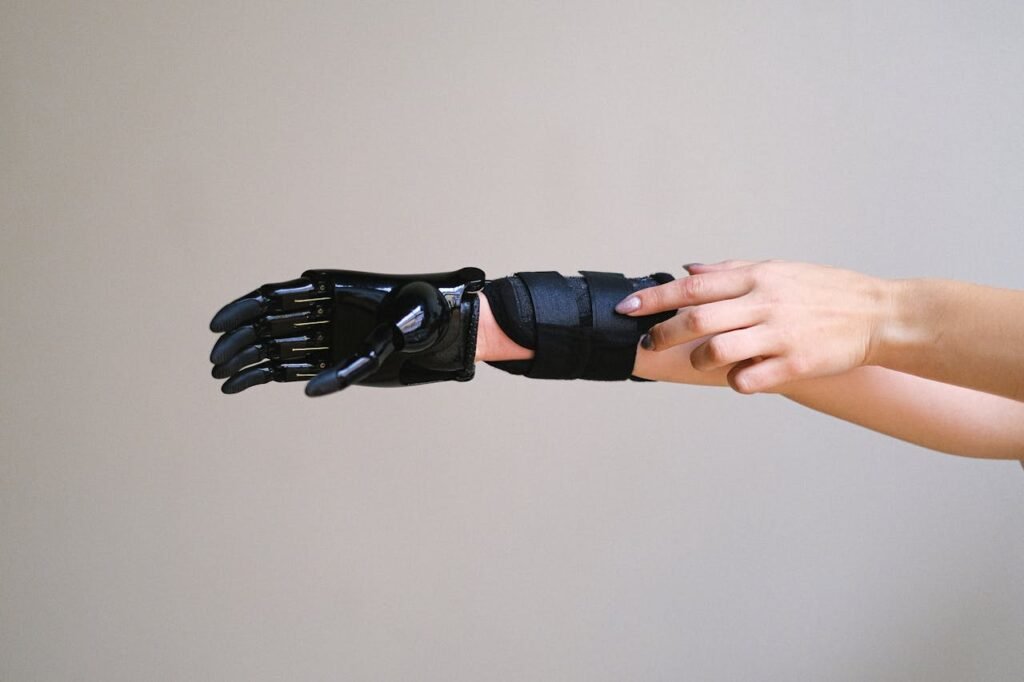
Bhubaneswar has a few government hospitals that offer prosthetic services. These include SCB Medical College and Hospital and AIIMS Bhubaneswar.
These centers are affordable and run by trained medical professionals. However, appointments may take time due to high patient load. If cost is your main concern, this could be a good place to start.
Private Rehab Clinics
There are also private clinics that specialize in prosthetic care. These often offer faster service, personalized fittings, and access to the latest technology like myoelectric limbs.
Clinics like Swami Vivekanand National Institute of Rehabilitation Training and Research (SVNIRTAR) have outreach in Odisha and nearby regions. They also guide patients on exercises and long-term use.
NGO and Charitable Prosthetic Camps
Several NGOs hold free prosthetic camps in and around Bhubaneswar. These are especially helpful for people who can’t afford private care.
Some camps offer Jaipur Foot-type limbs or basic prosthetics at no cost. Keep an eye on local newspapers or talk to your district hospital for updates.
The Role of Rehab in Prosthetic Success
Importance of Rehabilitation
Getting a prosthetic is just the beginning. Rehab is what makes it work for you.
Without rehab, even the best limb will feel hard to use. Muscles need training. The brain needs to adapt. And your confidence has to grow.
Rehab turns a prosthetic from an object into a part of your daily life.
Physiotherapy Sessions
Physiotherapists will help you strengthen your muscles. They’ll teach you how to walk, lift, or balance using your new limb.
In Bhubaneswar, many rehab centers offer one-on-one sessions. This helps you build your skills at your own pace.
Some therapists even visit your home, especially for elderly patients.
Occupational Therapy
This is where you learn how to use your prosthetic in real life—things like eating, brushing, dressing, or typing.
You’ll start with simple actions and move to complex tasks. Therapists will give you small daily goals and cheer you on.
This kind of training builds independence and restores confidence.
Mental Health and Peer Support
Sometimes, recovery feels lonely. That’s why emotional care matters too.
Some centers in Bhubaneswar have counselors or social workers to help with stress, anxiety, or grief after amputation.
They may also connect you to other users. Just knowing you’re not alone makes a big difference.
How to Schedule a Prosthetic Appointment in Bhubaneswar
Finding the Right Center
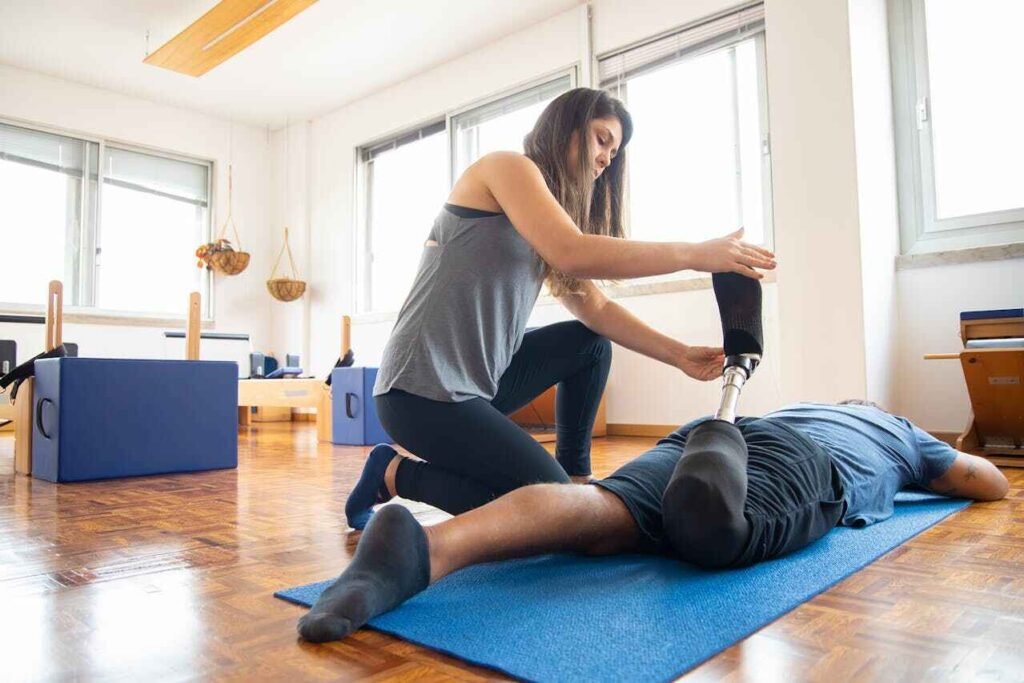
Do a bit of research before you choose a clinic. Look for places with good reviews, trained prosthetists, and real patient stories.
Ask about the kind of limbs they offer—mechanical, cosmetic, or bionic. Not all places have everything.
You can also call RoboBionics for guidance. We’ll help you find the right center and the right limb.
Booking a Demo or Consultation
Many prosthetic providers offer a free demo. This means you can try out a sample limb, ask questions, and decide what works best for you.
At RoboBionics, we offer in-person and video demos. You can book yours here: https://www.robobionics.in/bookdemo
It’s a good idea to bring a family member or friend. Two heads are better than one, especially when choosing something so personal.
What to Ask During the Visit
Don’t be afraid to ask questions. This is your journey, and you deserve clear answers.
Ask how long the fitting will take. What kind of training is included? How many follow-up visits are needed? What’s the total cost, and are there payment options?
Also ask about warranty, servicing, and support. Good aftercare makes a big difference over time.
Travel Tips for Long-Term Prosthetic Care in Bhubaneswar
Planning for Follow-Up Visits
Most prosthetic users need 2 to 3 follow-ups after the initial fitting.
Try to plan your travel and stay with this in mind. Book hotels or guesthouses that allow changes in dates, just in case your schedule shifts.
Ask the clinic how many sessions are needed and what the time gaps are between them. That way, you won’t be caught off guard.
Involving Family in the Process
Having a loved one with you helps more than you think.
They can help with dressing, transport, or just emotional support. Some clinics even train family members to help with at-home exercises.
If you’re traveling from outside Odisha, try to bring someone along. Recovery is easier when you don’t feel alone.
Budgeting for the Entire Journey
The cost of a prosthetic is one part. But also think about hotel stay, local travel, food, and extra rehab.
Make a rough budget. If cost is a concern, ask clinics if they offer EMI options or payment plans.
Some charitable organizations also provide financial aid. Don’t hesitate to ask for help—it’s your right.
What Makes a Good Prosthetic Fit?
The Importance of Socket Design
The socket is the part of the prosthetic that connects with your limb. If this part doesn’t fit well, everything else becomes harder. A good socket should feel snug, but not tight. It shouldn’t cause pain or pressure sores. In Bhubaneswar, most clinics now use 3D scanning or digital molding to design sockets that match your limb exactly. This reduces errors and improves comfort.
The first few days might feel awkward, but a proper socket will settle in as your limb gets used to the device. Technicians usually make small changes after the trial to make sure you’re fully comfortable. Don’t hesitate to speak up if anything feels off—this is your limb, and it has to feel like part of you.
Adjustments and Real-Life Use
Even with the best design, real life brings surprises. You may notice some discomfort when using the limb in daily activities. That’s normal in the beginning. The team may ask you to wear the prosthetic for a few hours each day to start with, slowly increasing your time.
Follow-ups are crucial at this stage. These visits help the clinic make small tweaks based on how your body is responding. Whether it’s grip strength, wrist rotation, or even the way the limb sits while you sleep—every detail matters. The goal is to make the prosthetic feel like second nature.
How Grippy™ is Changing Lives in Bhubaneswar
What is Grippy™?
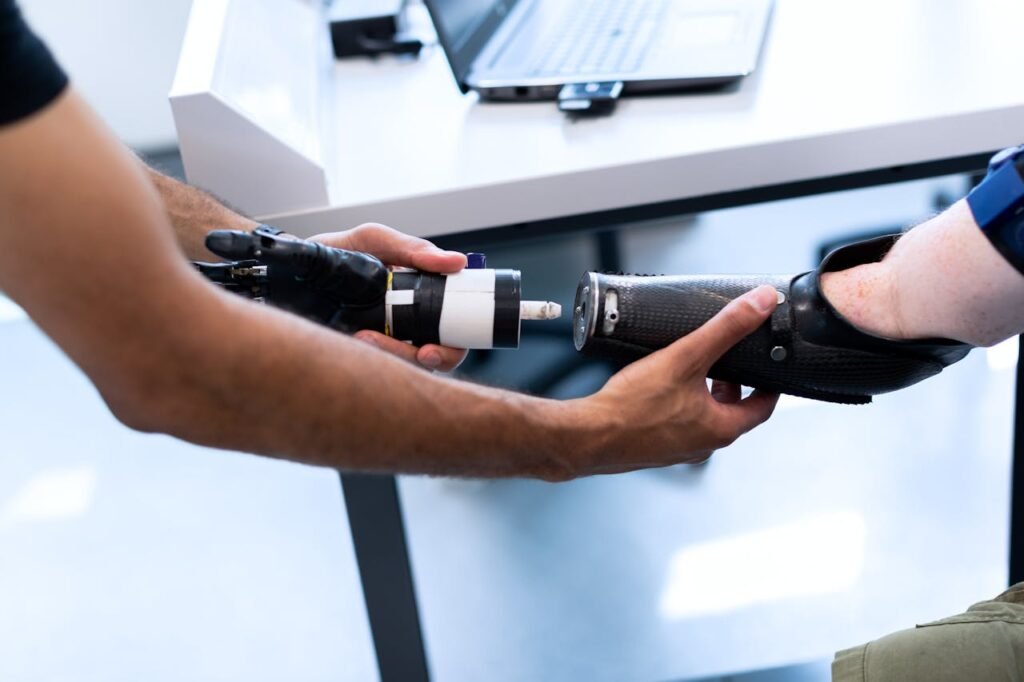
Grippy™ is a battery-powered bionic hand made by RoboBionics. It’s designed to help people with below-elbow amputations regain natural hand movements. What makes Grippy™ special is its Sense of Touch™ technology. This means it gives users feedback—so they can actually “feel” how much pressure they’re using when holding something.
It responds to the user’s muscle signals, which makes it very intuitive. You don’t need to push buttons or learn complicated commands. Just move your muscles the way you normally would, and Grippy™ does the rest.
Real People, Real Results
In Bhubaneswar, several users have already experienced how Grippy™ can transform daily life. From holding a cup to writing a note or tying shoelaces, the feedback from users has been heartwarming. Many of them say it’s not just about function—it’s about confidence.
We met one user who lost his hand in an industrial accident. After getting fitted with Grippy™, he was able to return to work within three months. Another young student told us that he no longer hesitates to raise his hand in class. These stories remind us why we do what we do.
Easy Access and Affordable Care
Unlike imported bionic hands that cost over ₹10 lakh, Grippy™ is proudly made in India and costs between ₹2.15 to ₹3 lakh. That’s a big difference. And because we work closely with local clinics, we can offer better support, faster delivery, and easier repairs.
For users in Bhubaneswar, this means you don’t need to travel to another city to access world-class prosthetics. Everything you need is right here—from the first consultation to training and aftercare.
Staying Motivated Through Recovery
Progress Takes Time
Wearing a prosthetic doesn’t fix everything overnight. It’s a journey. In the first few weeks, small wins matter the most—like learning how to pick up a spoon, type a message, or shake hands without worry. These moments build trust in the limb and in yourself.
Some days will feel slow. Others will bring breakthroughs. Try not to compare your journey with anyone else’s. Your path is yours alone, and every step forward counts.
Set Personal Goals
It helps to set simple, achievable goals. Maybe today’s goal is to wear your prosthetic for three hours. Tomorrow, it could be lifting a bottle or buttoning a shirt. These little wins stack up and make a huge difference.
Therapists often use gamified apps or visual tracking tools to make progress more fun. At RoboBionics, we’ve even developed a gamified rehab app that turns rehab into a daily challenge you can actually enjoy.
Celebrate Every Win
Each milestone deserves to be celebrated. Take pictures. Share your success with friends. Talk about how far you’ve come.
These moments of pride aren’t just feel-good—they’re fuel. They help you keep going when things feel hard. And they show others that recovery is not just possible, but powerful.
Support Systems and Resources in Bhubaneswar
Where to Find Help
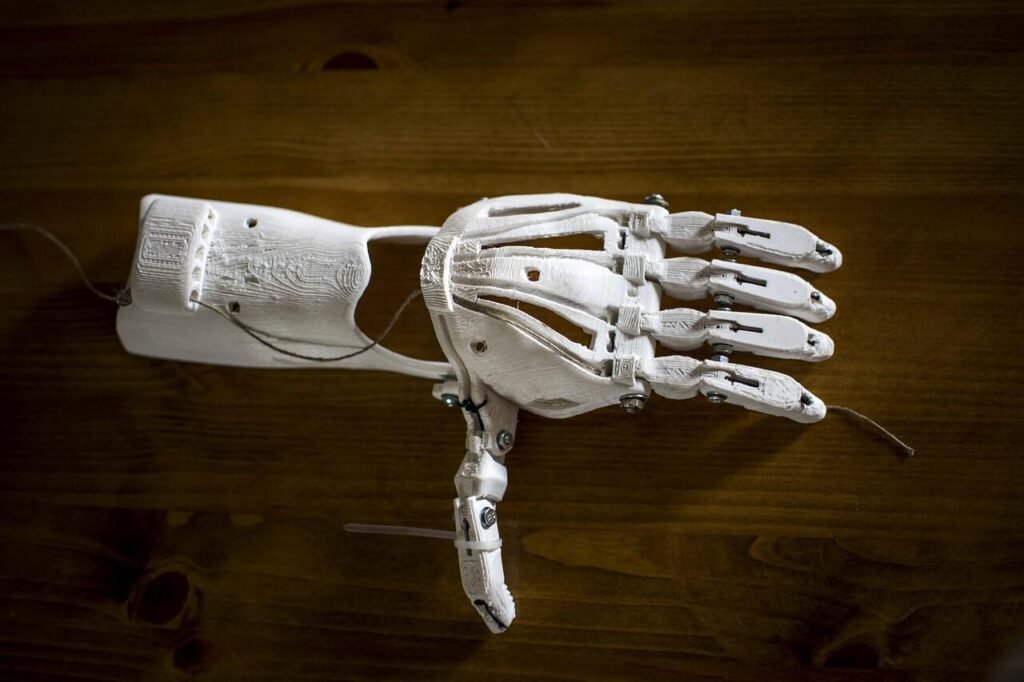
Support doesn’t end when you get your prosthetic. In Bhubaneswar, there are many local groups, hospitals, and rehab centers that continue to offer help even after your fitting is done. Some government hospitals provide ongoing physiotherapy, while private clinics may offer monthly check-ins or WhatsApp support for doubts and guidance.
You can also connect with local NGOs working in disability rights and rehabilitation. They often run workshops, awareness programs, and social events for prosthetic users. These aren’t just about therapy—they’re about community and hope.
Joining Peer Groups
Sometimes, the best support comes from someone who has walked the same path. Peer groups are growing across Bhubaneswar. These groups offer a safe space to talk about challenges, share tips, and learn from each other’s progress.
Being able to say, “I understand how you feel,” or “Here’s what worked for me,” can be deeply healing. It also builds friendships that go beyond recovery. If your clinic doesn’t already have one, ask them to connect you with a peer mentor.
Online Resources and Helplines
Many services have now gone digital. You can find instructional videos on how to use, clean, or care for your prosthetic. At RoboBionics, we offer free online guides and video walkthroughs for all Grippy™ users.
There are also national helplines for people with disabilities, including those run by government and private health networks. If you’re ever unsure about something, don’t wait. Reach out. Help is just a call or message away.
Final Thoughts: A Journey of Strength, Not Just Healing
Losing a limb is hard. But it’s not the end of your story. With the right prosthetic, the right care, and the right support, you can get your life back—and even discover new parts of yourself along the way.
Bhubaneswar offers more than just clinics and hospitals. It offers calm. It offers kindness. It offers the kind of local care that helps you feel seen, heard, and respected.
At RoboBionics, our mission is to restore confidence and joy through innovation. Grippy™ is one part of that. But the bigger story is about people—like you—who show courage every day, and who choose to move forward, no matter what.
If you’re ready to take that first step, or even just want to talk to someone who understands, we’re here for you.
Schedule a free demo today at https://www.robobionics.in/bookdemo and let’s walk this journey together.
You’re stronger than you think—and we’re with you, every step of the way.



